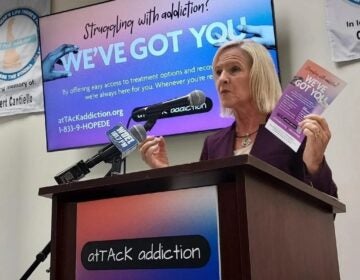Event aims to cool discussion about hot-button issues
Can we talk about health care without killing each other?
Next week, I’m going take part in an experiment testing that proposition.
It’s called the Bernard Wolfman Civil Discourse Project. This public event will be held at Beth Sholom Congregation in Elkins Park at 7:30 p.m., March 28. The event is the brainchild of Dina Baker, a congregation member who works in the health-care field, to honor her late father.
My role will be to help two top experts on health care have a lively but respectful conversation about where they disagree, and as importantly, where they agree about what’s not working with the nation’s health care system — and what we should do about that.
The experts are David Nash, founding dean of the School of Population Health at Thomas Jefferson University, and Stuart Butler, director of the Center for Policy Innovation at the Heritage Foundation in Washington. If you need an ideological scorecard, Nash leans to the more liberal side, Butler to the conservative.
My job will be to show how a dialogue can go when a moderator seeks not loud quarreling and gotcha moments for YouTube, but instead seeks greater clarity and understanding.
So, yeah, I hope this event will be different.
In a way, though, it’s sad that holding an informed, civil conversation about health care should seem at all unusual. But after years of silly, misguided shouting about Obamacare, it does seem so.
Now, let me be clear: Civil dialogue does not meaning pretending not to disagree. Nash and Butler have very different policy ideas for health care, and I expect them to present those differences briskly. Disagreement is the lifeblood of democratic dialogue, as long as it’s undergirded with respect.
The keys to our success, if we have any on March 28, will be this: We will not frame or treat this as a debate, where one side wins and one side loses. We will treat this as a conversation, where each side can win equally.
How? Well, your sense of winning all depends on how you define success. If you define it as crushing a foe, that’s one thing.
But what if you define success as learning more about how the other guy sees an issue, and why he reacts the way he does to your view of the issue? Then both sides can win.
If you define success as getting a better grasp of the weak points of your own position, so that you can work to repair them with better insights and data, then both sides can win.
In healthy families, healthy organizations, healthy democracies, that’s what conversation is and does. It is really so much more fun and satisfying than shouting slogans and insults back and forth across a wall.
For more information on this event, visit www.civildiscourseproject.org. Hope to see you there.
WHYY is your source for fact-based, in-depth journalism and information. As a nonprofit organization, we rely on financial support from readers like you. Please give today.




